
Organizers of York University’s acclaimed Canadian Writers in Person (CWIP) series offer their suggestions for important books to read during the holiday break (and beyond).
After much deliberation and debate, York University Humanities Professors Leslie Sanders and Gail Vanstone together with Dana Patrascu-Kingsley, a contract faculty member in the Department of English, have winnowed down decades of books featured in the Canadian Writers in Person series into a list of 25 books curated for your holiday reading pleasure. The three faculty members organize the annual reading series, which brings new and established Canadian authors to campus (or via Zoom) to deliver readings from their books. Saunders, Vanstone and Patrascu-Kingsley were responding to a request from YFile for their recommendations for meaningful and important books to read over the holiday break (and beyond).
“We welcome the invitation from YFile to compile a list of our favourites, but find it an almost impossible task to choose only a few names from more than 250 invited authors since the series’ inception,” said Vanstone on behalf of the intrepid trio. “Each of these texts stuck with us in one way or another, so our selections are governed by our personal tastes and by serendipity. CWIP includes both seasoned and emerging voices, and the list we offer in response to your generous enquiry is far from exhaustive; rather it is an eclectic offering, testimony to the richness of the program. We are proud to say that our list reflects the broad palette of contemporary Canadian literature – and could have contained many more titles.”
Canadian Writers in Person is a course offered in the Culture & Expression program in the Department of Humanities in York University’s Faculty of Liberal Arts & Professional Studies. For more information on the series, visit yorku.ca/laps/canwrite, or email Vanstone at gailv@yorku.ca or Sanders at leslie@yorku.ca. The series continues Jan. 18 with a reading from Thomas King’s latest novel, Sufferance (HarperCollins Canada, 2021).
Here are their suggestions:
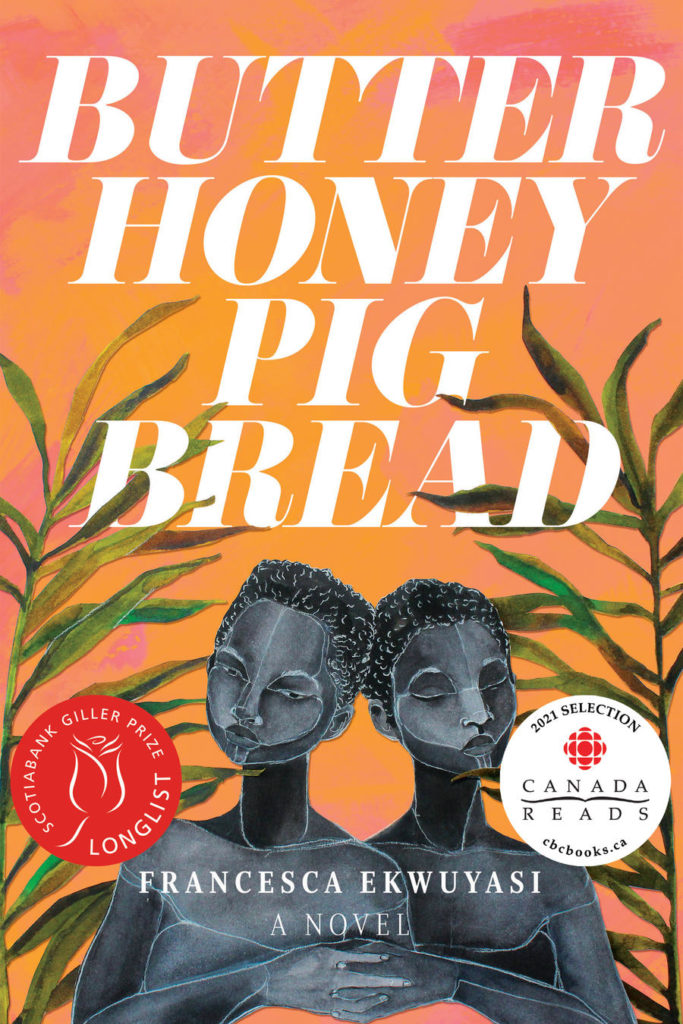
David Chariandy, Brother
Chariandy’s Brother is a powerful, beautiful novel that explores questions of masculinity, family, race and identity in a Scarborough housing complex during the heat and violence of the summer of 1991.
Megan Gail Coles, Small Game Hunting at the Local Coward Gun Club
Coles’s debut novel rips into the inner lives of a cast of characters, exposing class, gender and racial tensions over the course of one Valentine’s Day in the dead of a winter storm.
Francesca Ekwuyasi, Butter Honey Pig Bread
Ekwuyasi’s debut novel tells the interwoven stories of twin sisters, Kehinde and Taiye, and their mother, Kambirinachi, who feels she was born a spirit that plagues families with misfortune by dying in childhood to cause its mother misery.
Michelle Good, Five Little Indians
A Cree Canadian writer, Good’s award-winning novel is a moving story of five survivors of the Canadian Indian residential school system. Five Little Indians tells the story of their struggles to rebuild their lives after their time in residential schools.
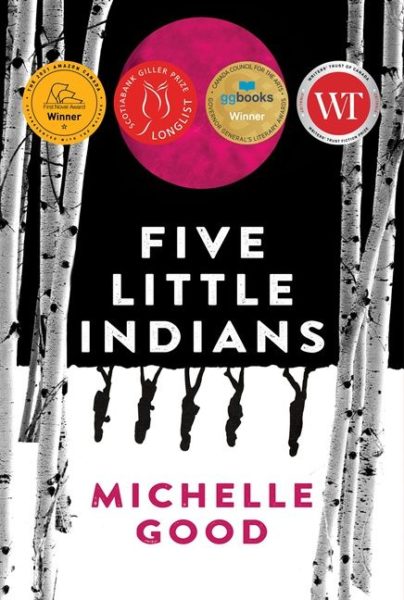
Laurie D. Graham, Settler Education
In Settler Education, Graham explores through her poetry the Plains Cree uprising at Frog Lake, including the death of nine settlers, the hanging of six Cree warriors, the imprisonment of Big Bear and the opening of the Prairies to settlement.
Sky Dancer Louise Halfe, Burning in This Midnight Dream
Burning in This Midnight Dream is the latest collection of poems by Halfe in response to the tide of emotions, memories, dreams and nightmares that arose in her during Canada’s Truth and Reconciliation process.
Kaie Kellough, Dominoes at the Crossroads
Dominoes at the Crossroads maps an alternate Canada, one crisscrossed by a Caribbean diaspora seeking music, futures and portals to their past. Kellough’s characters navigate race, history and coming-of-age by way of their confessions and dreams.
Carrianne Leung, That Time I Loved You
In That Time I Loved You, Leung depicts the fine line where childhood meets the realities of adult life and examines how difficult it is to be true to ourselves at any age.
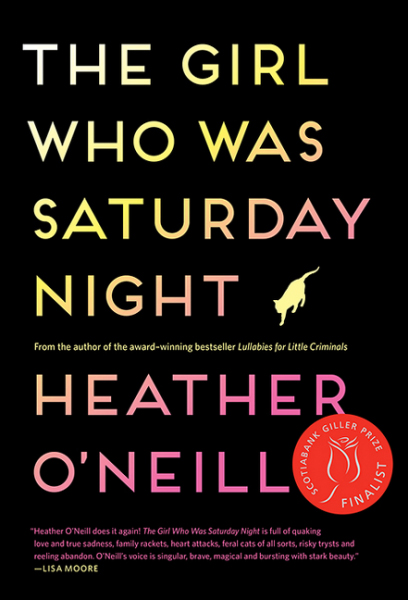
Canisia Lubrin, Voodoo Hypothesis
Lubrin’s poetry collection seeks to subvert the imperial construct of “Blackness” and reject the contemporary and historical systems that paint Black people as inferior through constant parallel representations of “evil” and “savagery.”
Suzette Mayr, Monoceros
Monoceros explores the effects of a suicide on characters outside the immediate circle. Mayr offers an original look at the ripple effects – both poignant and funny – of a tragedy.
Heather O’Neill, The Girl Who Was Saturday Night
The Girl Who Was Saturday Night is set in Montreal in 1995, and it follows the adventures of Nouschka and Nicolas Tremblay, 19-year-old twins who live in a rundown apartment on St. Laurent with their grandfather, Loulou, who raised them.
Soraya Peerbaye, Tell: Poems for a Girlhood
Tell: Poems for a Girlhood is partially based on the Reena Virk murder case, which took place in a Victoria, B.C. suburb in 1997. Peerbaye asks in this collection of poems, who has access to the innocence of childhood? She also reflects on her own memories of girlhood and adolescence.
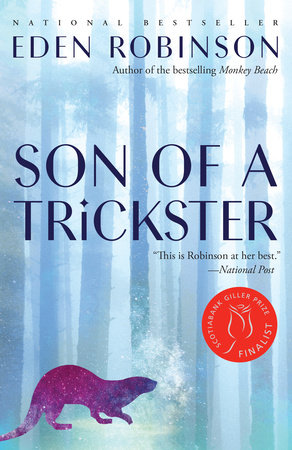
Michael Prior, Burning Province
Burning Province, Prior’s second collection of poetry explores, the enduring impact of the Japanese internment upon his family legacy and his mixed-race identity. Amid the record-breaking wildfires that scorched B.C. in 2015 and 2017, the poems in this collection move seamlessly between geographical and psychological landscapes.
Zalika Reid-Benta, Frying Plantain
Reid-Benta’s first book is a collection of beautifully interwoven stories that took 10 years to write. The stories focus on the protagonist’s experiences growing up and exploring her Black identity as a teenager in Toronto’s Eglinton West neighbourhood, “Little Jamaica.”
Eden Robinson, Monkey Beach and Son of a Trickster
Monkey Beach is a spellbinding voyage into the long, cool shadows of B.C.’s Coast Mountains, blending teen culture, Haisla lore, nature spirits and human tenderness into a multi-layered story loss and redemption. Son of a Trickster journeys through the life of teenager, Jared, who tried to make sense of a broken family, substance abuse, poverty and spirituality. It is the first book in Robinson’s Trickster trilogy.
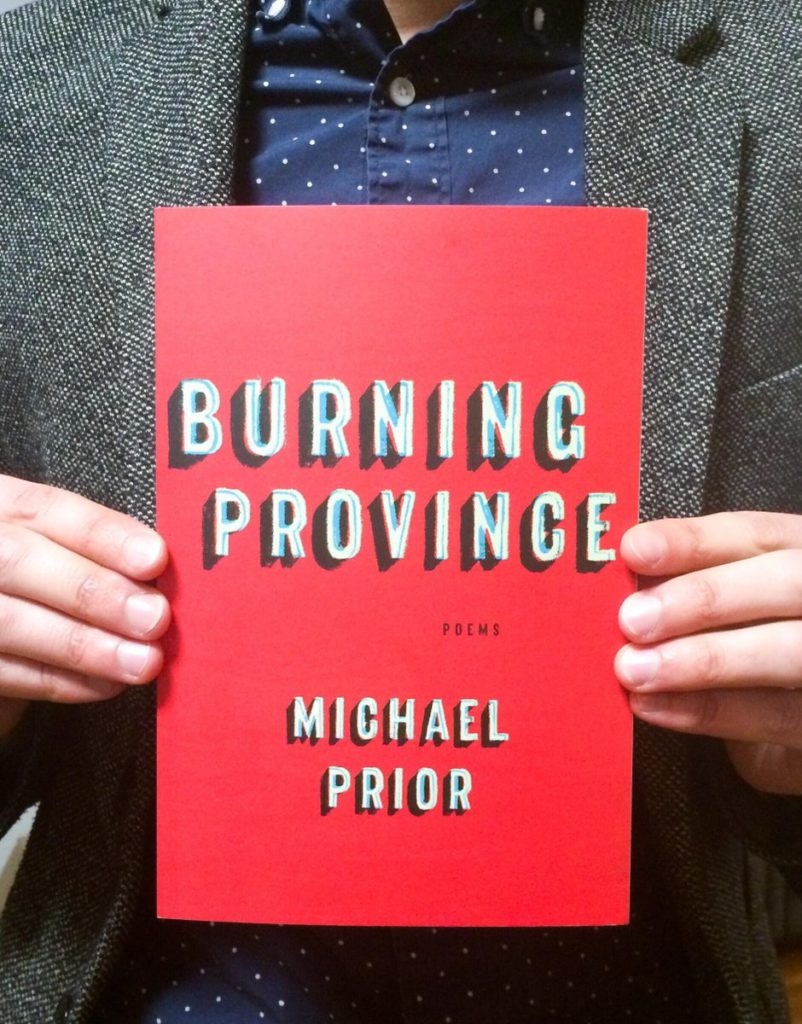
Tanya Tagaq, Split Tooth
In Split Tooth, Tanya Tagaq explores a world where the distinctions between good and evil, animal and human, victim and transgressor, real and imagined lose their meaning, but the guiding power of love remains.
Souvankham Thammavongsa, How to Pronounce Knife and Small Arguments
In her collection How to Pronounce Knife, Thammavongsa offers stories that focus on characters struggling to build lives in unfamiliar territory, or shuttling between idioms, cultures and values. In Small Arguments, proof of the power, beauty, and complexity beneath the surface of the small and ordinary is presented by Thammavongsa in each of her poems.
Kim Thuy, Mãn
A book about love and food, and the connections between love and familial duty, Mãn makes us aware of the complexity and variety of human emotions and the intricate ways in which they can be expressed. Mãn is about life in Vietnam before the war and then immigration to Canada where Mãn, the protagonist, raises a family, makes friends, and experiences love.
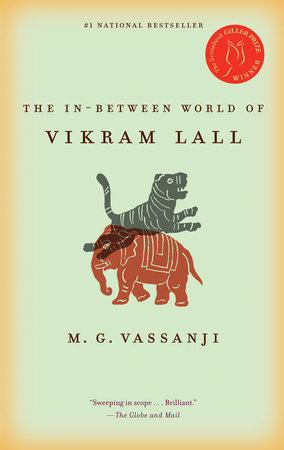
Richard Van Camp, Night Moves
In the hilarious and heartbreaking Night Moves, Van Camp returns to characters whose lives have touched us before in his previous books The Lesser Blessed, Angel Wing Splash Pattern, The Moon of Letting Go, and Godless but Loyal to Heaven.
M. G. Vassanji, The In-Between World of Vikram Lal
Vassanji’s The In-Between World of Vikram Lall is a haunting novel of corruption and regret that brings to life the complexity and turbulence of Kenyan society in the last five decades.
Katherena Vermette, North End Love Songs and The Break
Vermette’s award-winning poetry collection North End Love Songs is an ode to the place she grew up, where the beauty of the natural world is overlaid with the rough reality of crime and racism. The Break is a fictional story begins one evening when young Métis mother Stella looks out her window and sees someone in trouble on the break (an isolated piece of land) and calls the police. The story is told through shifting narratives of those connected to the victim. The reader learns of their personal stories leading up to the event, and a larger story unfolds.
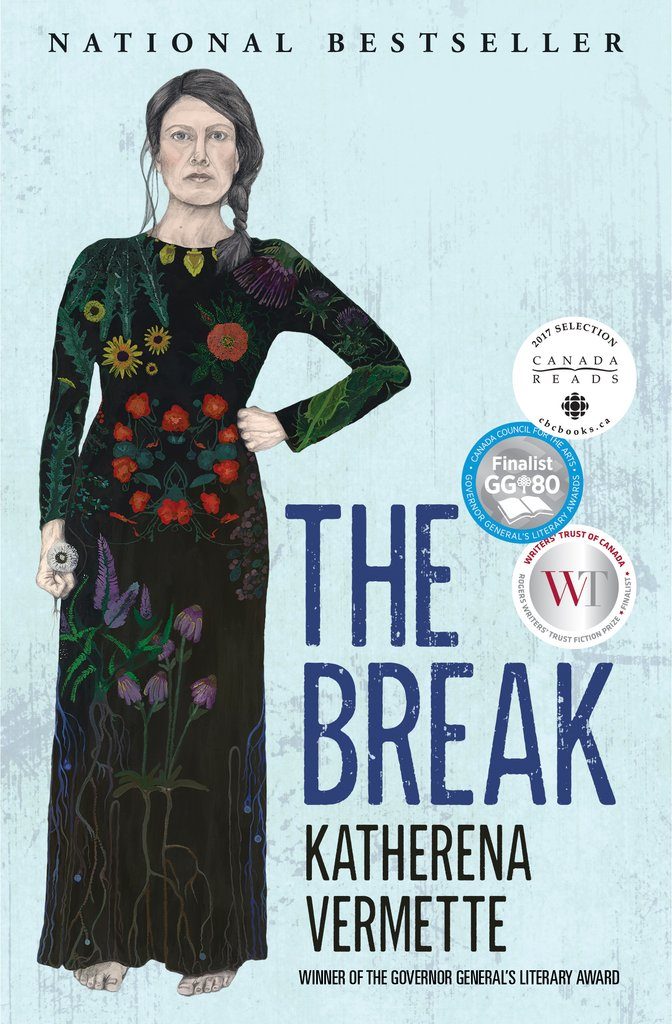
Phoebe Wang, Admission Requirements
The poems in Wang’s debut collection titled Admission Requirements attempt to discover what is required of us when we cut across our material and psychic geographies.
